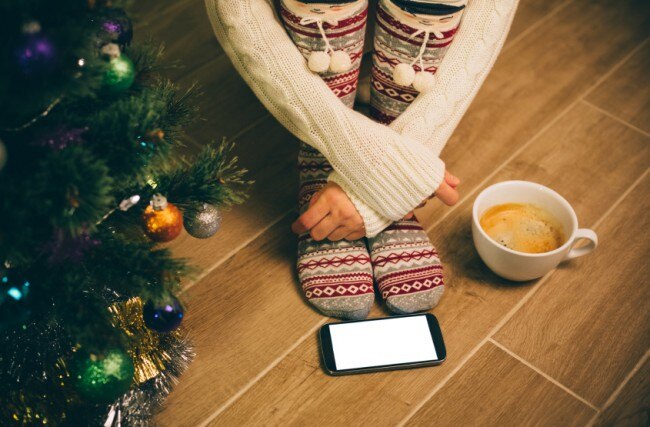The holidays are a time for togetherness, and millions of Americans look forward to reconnecting with friends and loved ones during the season.
But for the approximately 15 million adults with social anxiety disorder, the holidays can be fraught with fear and discomfort.
Social anxiety disorder is an extreme fear of being scrutinized and judged by others in social or performance situations, according to the Anxiety and Depression Association of America.
People with this condition experience feelings that go far beyond mere shyness and that negatively impact their day-to-day lives.
The holidays – with all the parties, family dinners and other forms of yuletide cheer – can be a major trigger for social anxiety symptoms.
“Gatherings can be frightening for people with social anxiety disorder,” says Jean Kaplan Teichroew, spokesperson for the ADAA. “They often try anything to avoid them.”
Social anxiety and its impact
People with social anxiety disorder are aware of its presence, but typically feel powerless to do anything about it. They often have few social relationships, and their condition can provoke a range of negative feelings, including:
- Inadequacy
- Inferiority
- Embarrassment
- Humiliation
- Depression
Social anxiety disorder tends to begin around the age of 13 and affects men and women equally. Sadly, 36 percent of people with social anxiety disorder have symptoms for a decade or more before seeking help, according to an ADAA survey.
Holiday get-togethers are likely to intensify fears and symptoms in a person with social anxiety disorder. Even gatherings with very close loved ones can provoke nervousness.
“While people suffering from social anxiety may feel slightly more comfortable around family, their fears and feelings of discomfort remain present,” says Stacia Casillo, clinical director at Manhattan Psychiatric Associates in New York, which is affiliated with the Ross Center for Anxiety & Related Disorders in Washington, D.C.
Tips to reduce holiday social anxiety
If you feel socially anxious at holiday events, there are steps you can take to reduce such symptoms.
Casillo encourages patients with anxiety to set realistic goals and expectations around the holiday season. She also encourages them to engage in activities they enjoy and that bring them pleasure.
By contrast, it is important to avoid activities that may provoke symptoms, she says. That includes limiting time spent on social media.
“Social media often reinforces fears that you are ‘missing out,’ or not engaging in activities that you ‘should’ be doing,'” she says.
She also encourages people with social anxiety to give their time to a worthy cause.
“Volunteering is a wonderful activity that allows people to focus on the needs of others and to step out of their own internal world,” she says.
The ADAA offers the following tips for reducing social anxiety:
- Take the pressure off yourself. Lower expectations about holiday events, understanding that it is normal if things don’t go exactly as planned.
- Realize that people are not focusing on you. Ironically, the people you worry about are just as likely to be wondering what you think of them. Try complimenting others – it makes both them and you feel good.
- Identify specific concerns. Try to pin down exactly what makes you afraid, such as a fear of saying the wrong thing. Then, realize that the worse outcome of such a faux pas is likely to be a little discomfort.
- Avoid escaping through alcohol or drugs. These substances actually can increase anxiety and may cause actual panic attacks.
- Smile, make eye contact and ask questions. Be engaging by asking people about themselves. Talk about topics they might enjoy – their family, their interests – and avoid controversial topics.
- Choose to say no. You do not have to accept every invitation. If something causes you too much stress, try to eliminate it.

